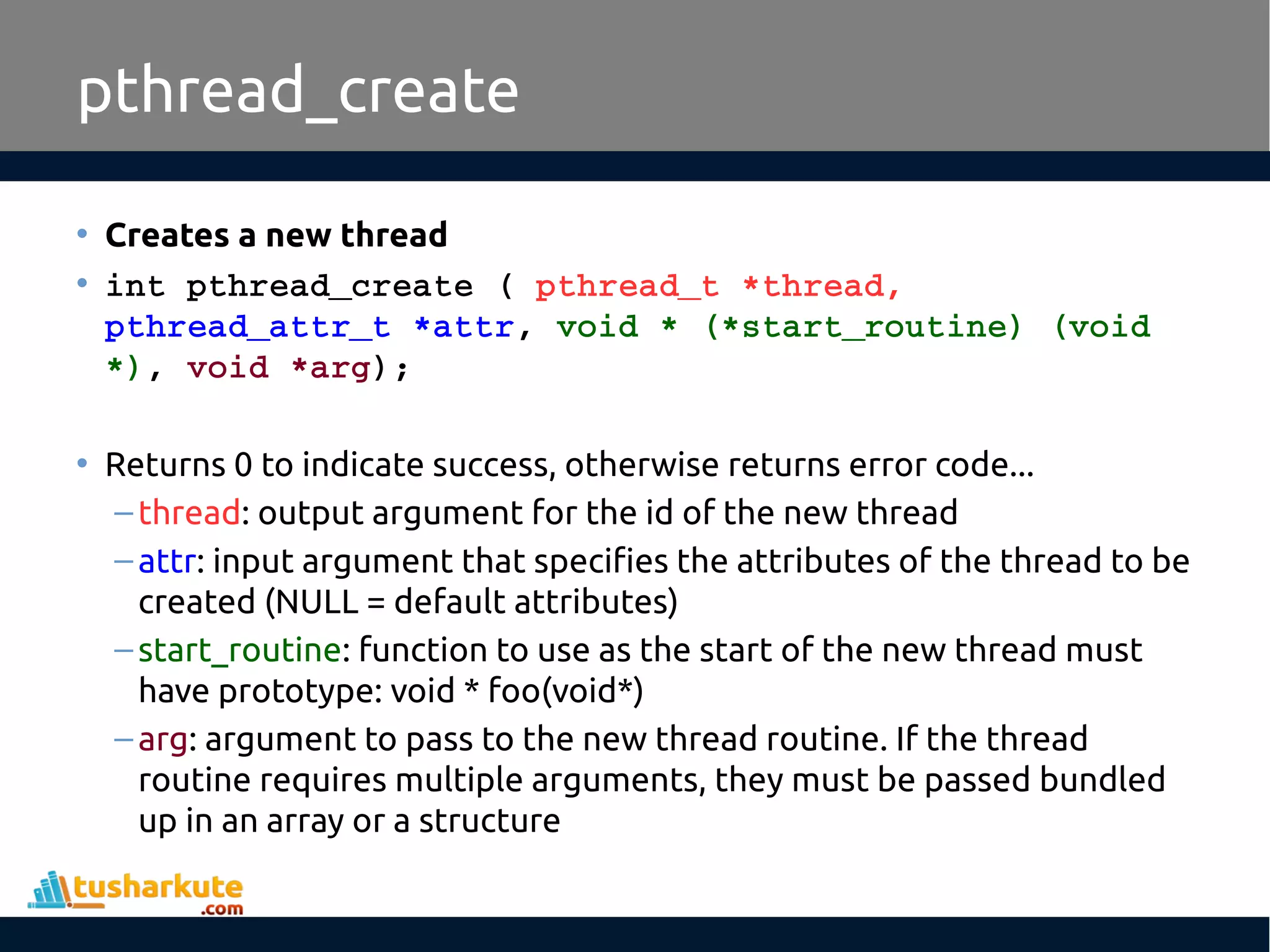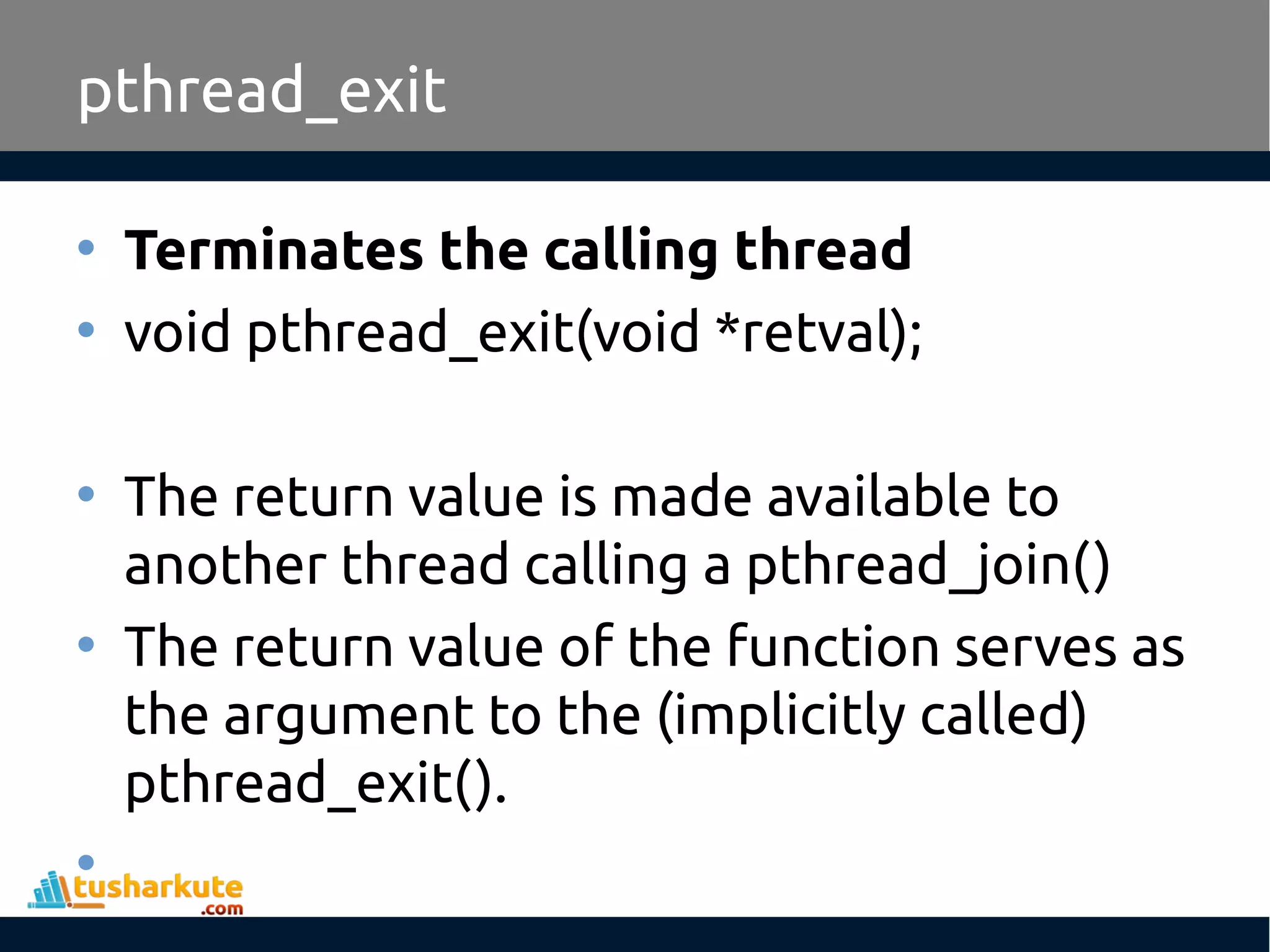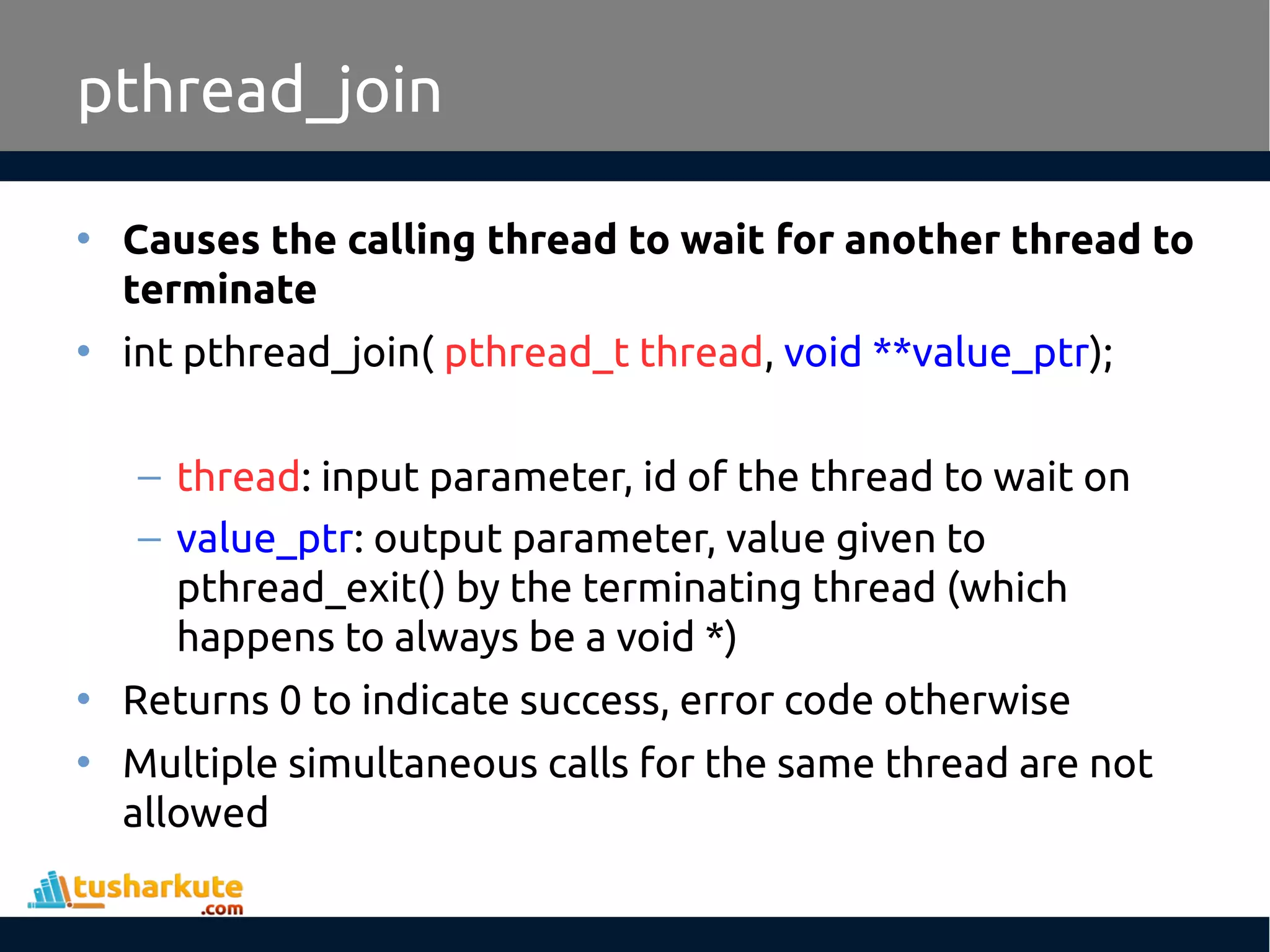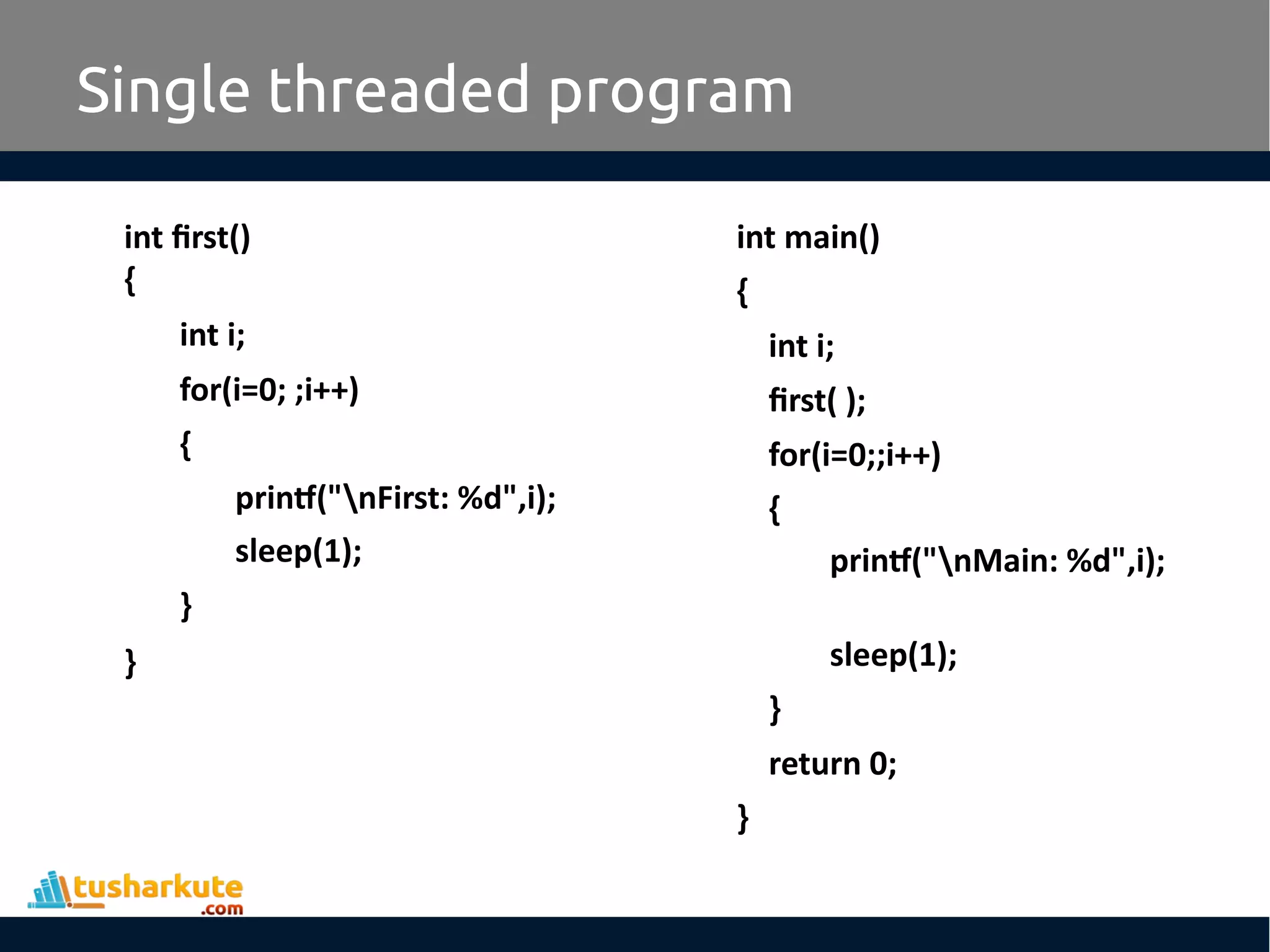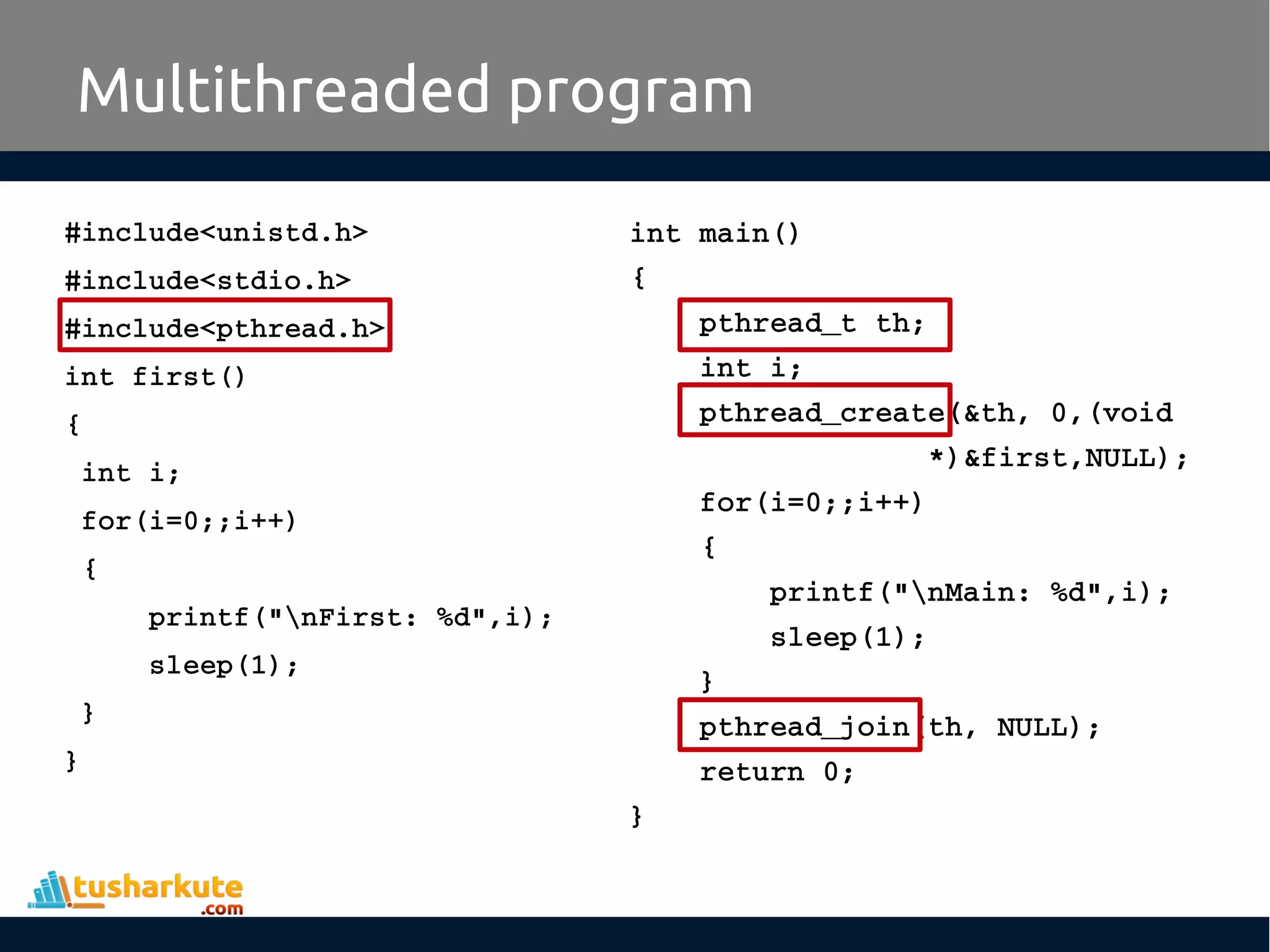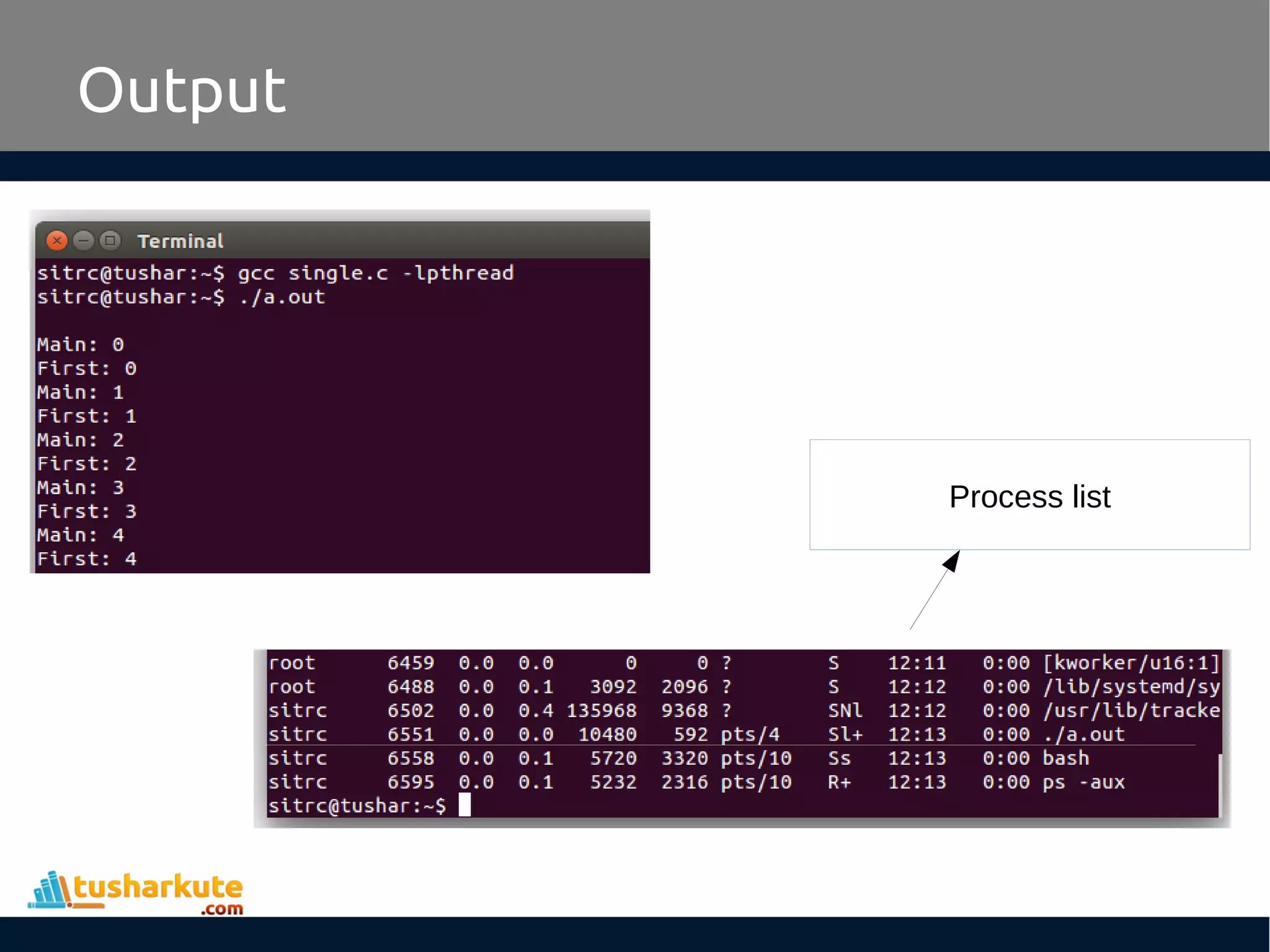This document discusses basic multithreading using POSIX threads (pthreads). It explains that a thread is an independent stream of instructions that can run simultaneously within a process and shares the process's resources. It describes how pthreads allow for multithreading in UNIX/Linux systems using functions and data types defined in the pthread.h header file. Key pthreads functions are also summarized, including pthread_create() to generate new threads, pthread_exit() for a thread to terminate, and pthread_join() for a thread to wait for another to finish. Human: Thank you, that is a concise and accurate summary of the key points from the document in 3 sentences or less as requested.


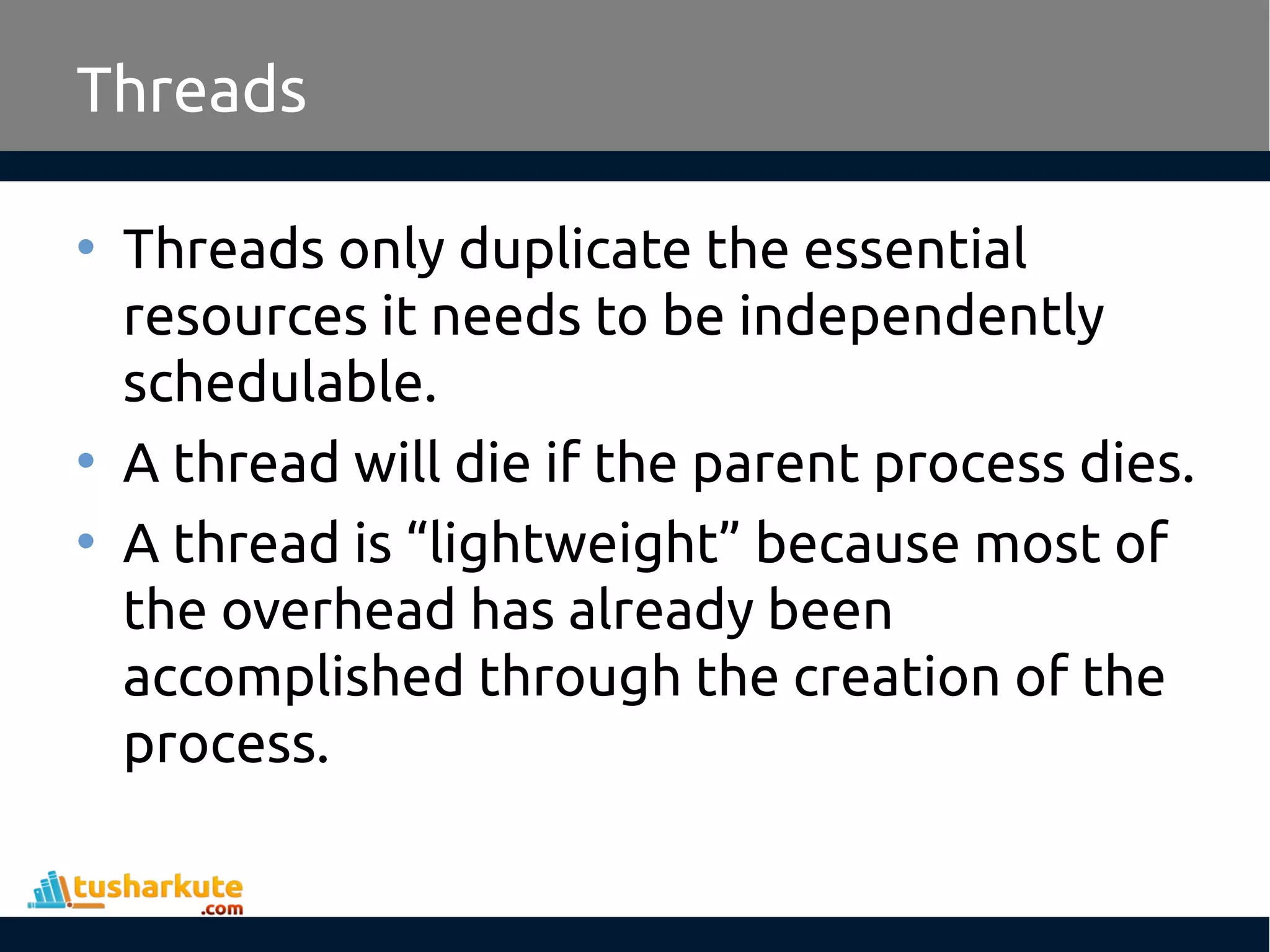
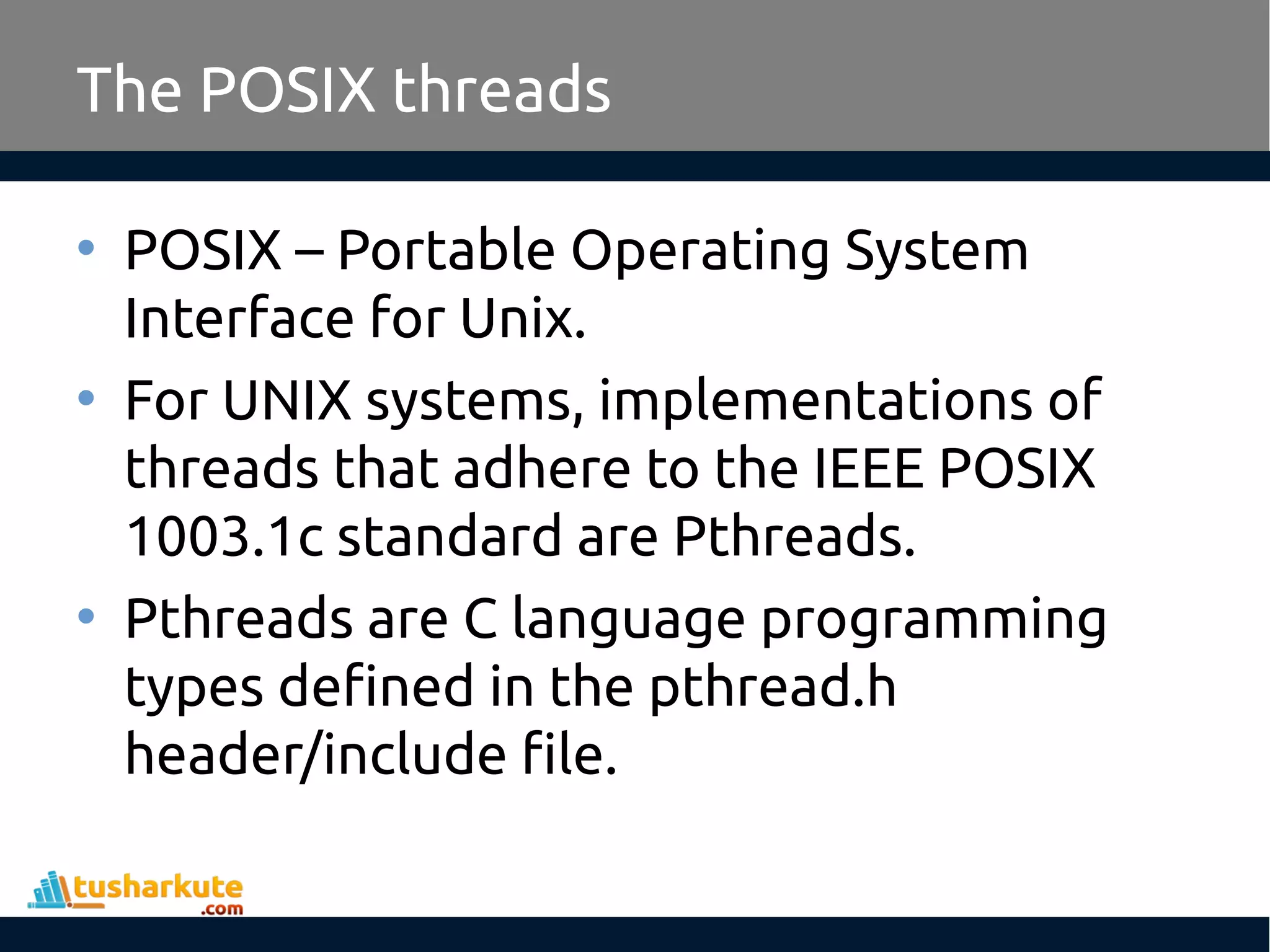
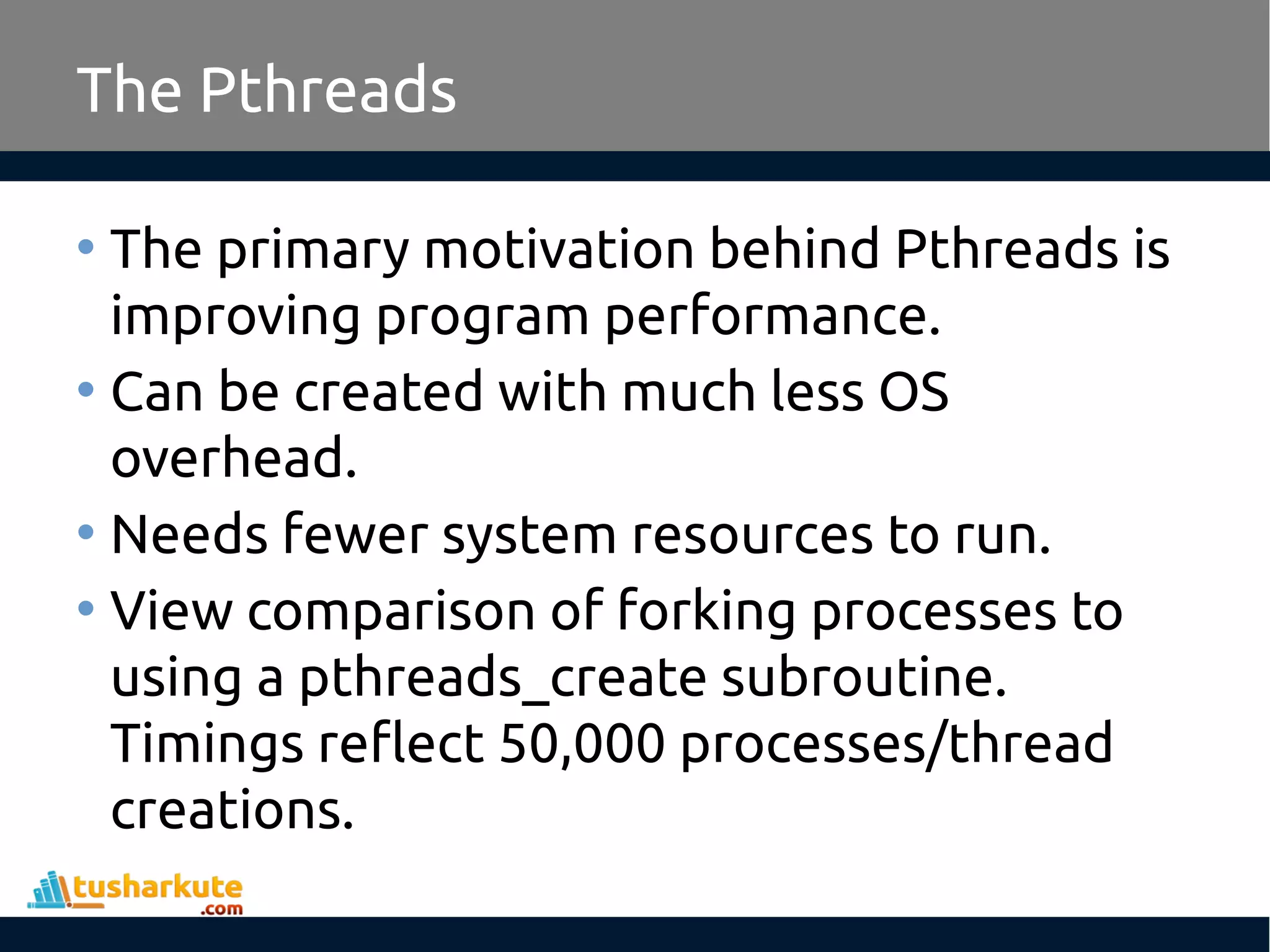
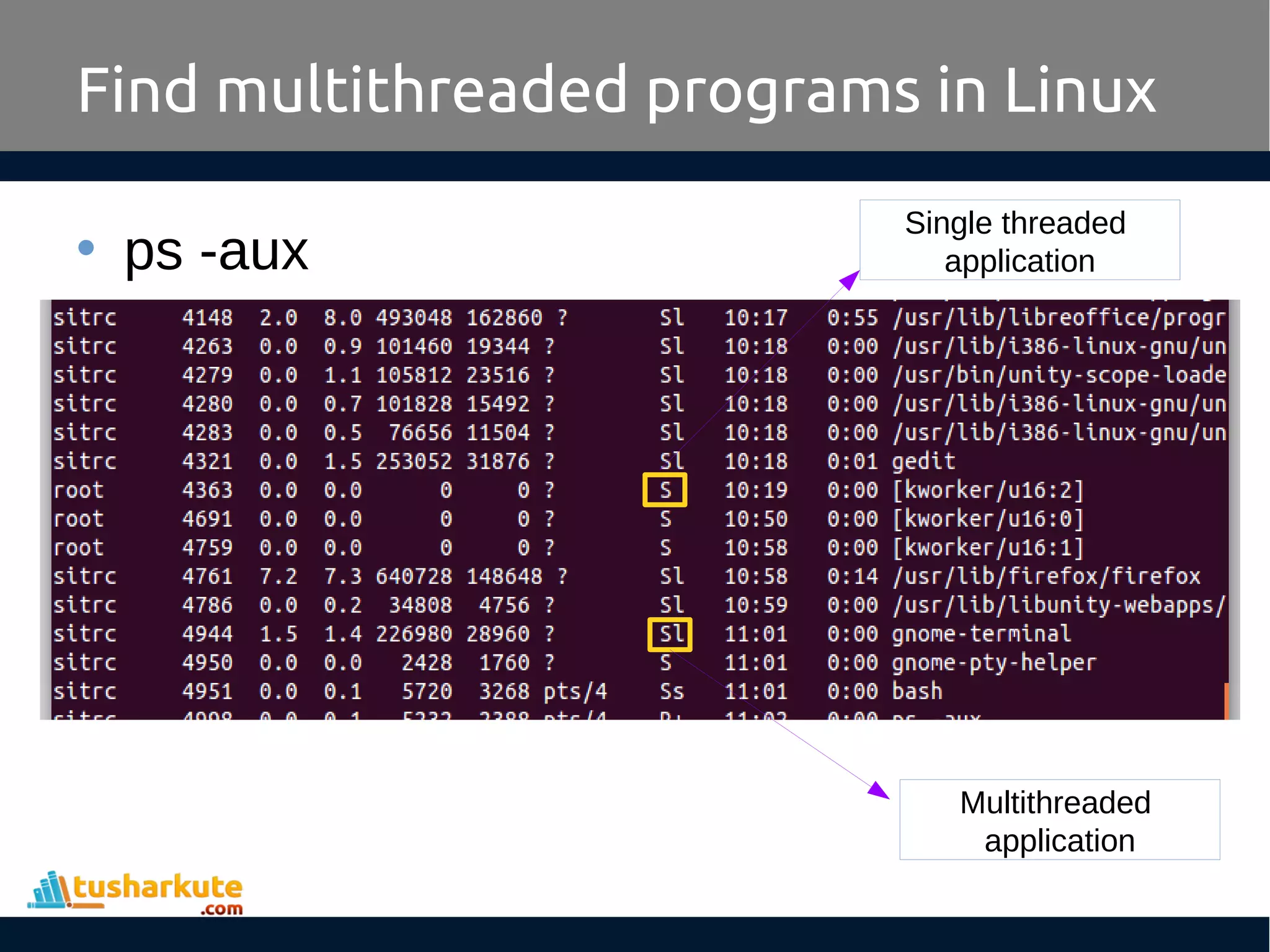
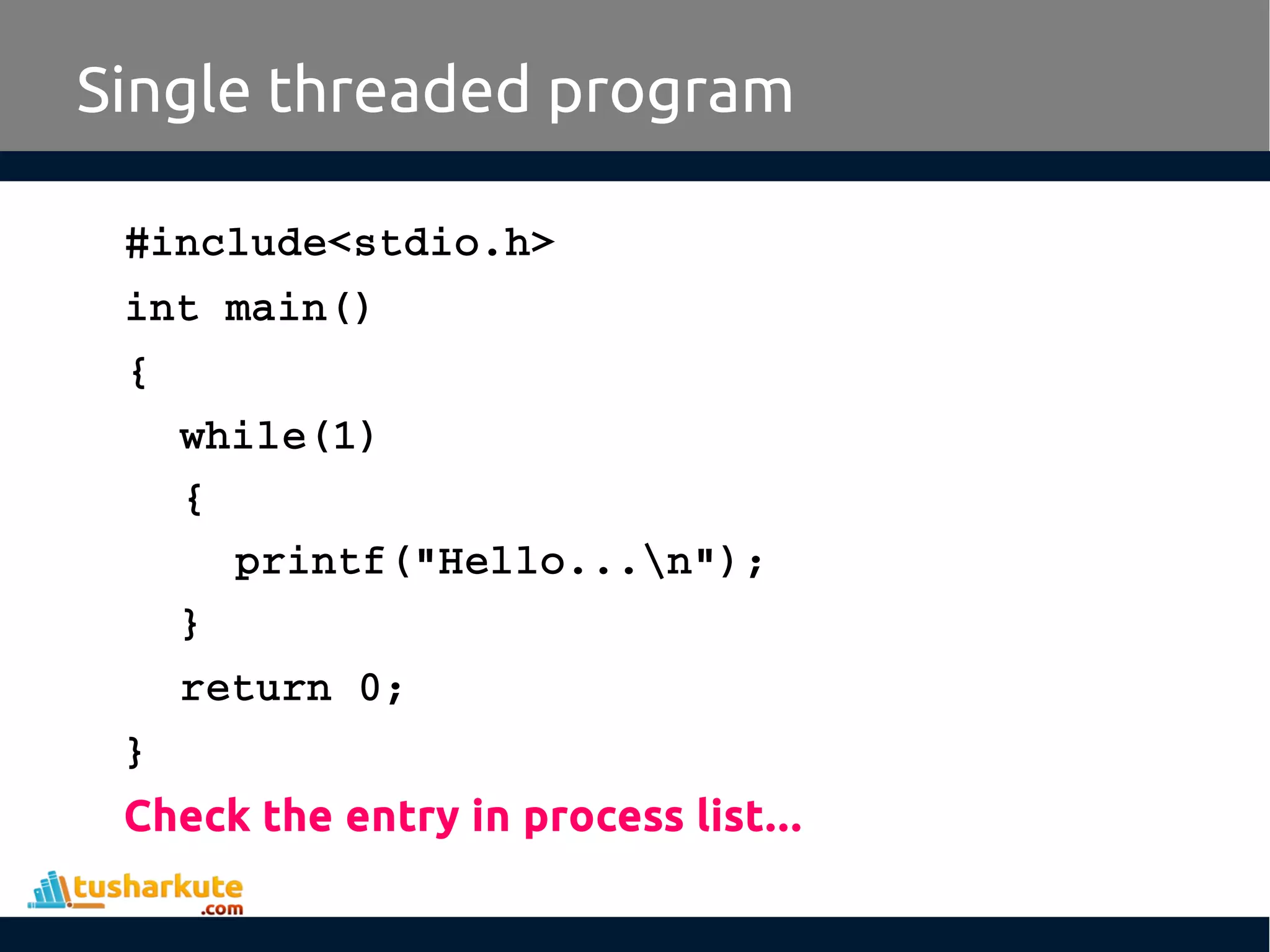

![Pthread: naming convensions • Types: pthread[_object]_t • Functions: pthread[_object]_action • Constants/Macros: PTHREAD_PURPOSE • Examples: – pthread_t: the type of a thread – pthread_create(): creates a thread – pthread_mutex_t: the type of a mutex lock – pthread_mutex_lock(): lock a mutex – PTHREAD_CREATE_DETACHED](https://image.slidesharecdn.com/multithreadingusingposixthreads-150306012451-conversion-gate01/75/Basic-Multithreading-using-Posix-Threads-9-2048.jpg)
